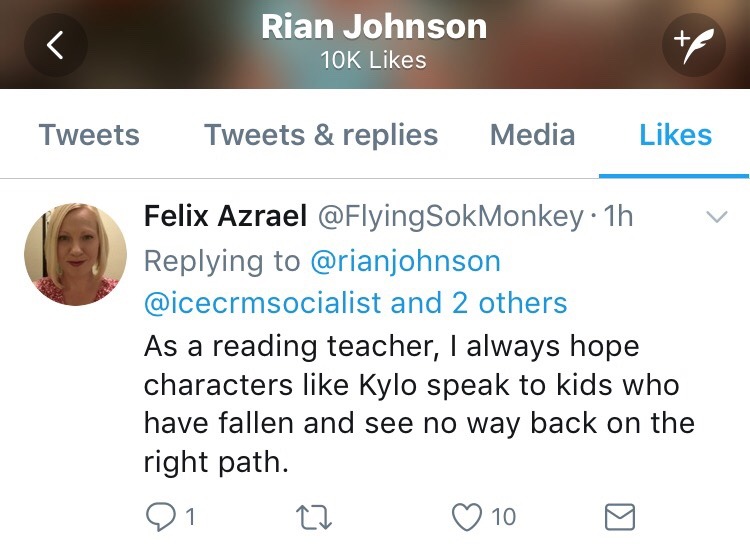I’m struggling to understand how redeeming Kylo makes the whole trilogy about him anymore so than it already was. That’s a jump being made and I don’t see the reasoning behind it, or the evidence of it in the final product.
I also reject the notion that Kylo shouldn’t have turned good just because Vader did too. A story should dictate its own direction, not just follow the path of another - whether that’s copying or purposefully doing the opposite. Not doing something just because its been done before is just as bad as doing something just because it’s been done before. What matters is what’s right for the story.
The idea that Kylo Ren represents the alt-right is not in anyway a given. That’s not the message that they’ve ever been trying to make, and it’s not the message that comes through in the film (Hux? maybe. Kylo? No). From the very start this is a character they humanized and gave depth to. He is someone who has struggled with the darkness within him, who has been manipulated and abused by evil men, who has been betrayed by a loved one, who has made choices that he has regretted, and who we know has the same capacity for light as he does for darkness. Star Wars is and has always been a mythic story, a metaphorical story about right and wrong and the freedom of choice to do good. Kylo is not supposed to be that evil other, you’re supposed to see yourself in him. He’s not the big bad to Rey’s goody hero, they’re a yin and yang. To cast this aside and just make him evil is to ignore everything that makes the character interesting.
I think Rian Johnson said it best:
And also this tweet that he liked:

At its heart, SW films are for kids. TFA did a new thing for a SW film, where it made the villain a POV character in a way that none of the other films did. TLJ took this further, inviting identification with the character, engendering sympathy and empathy with him. There was only one conclusion that made sense for him in Episode IX.

